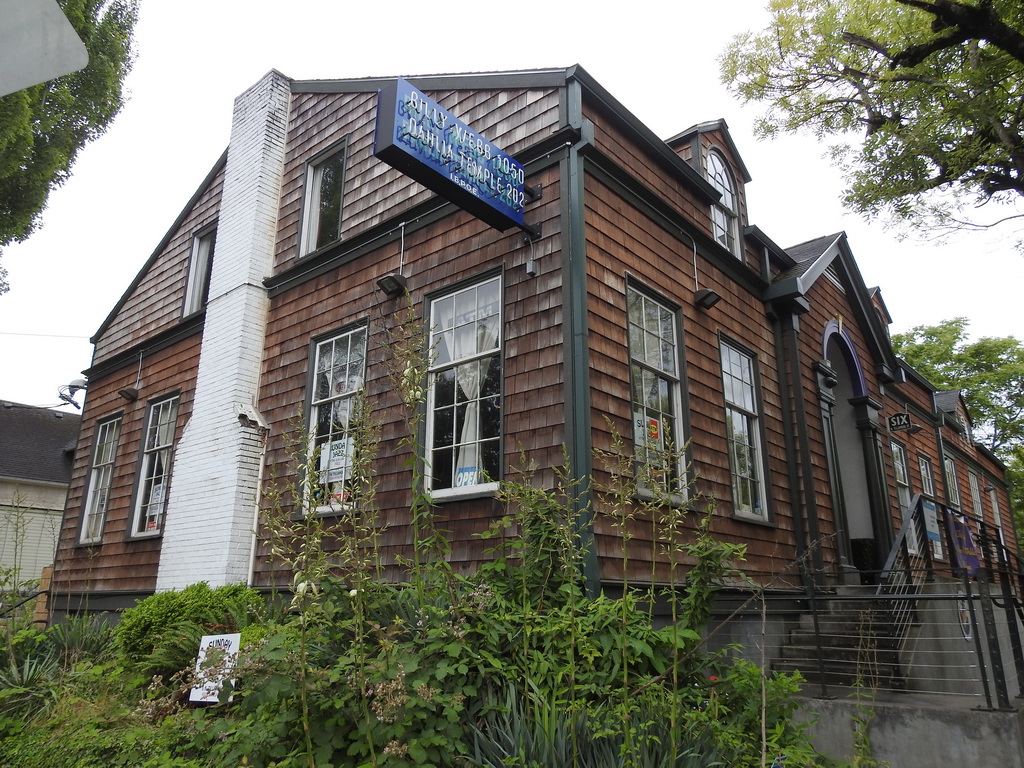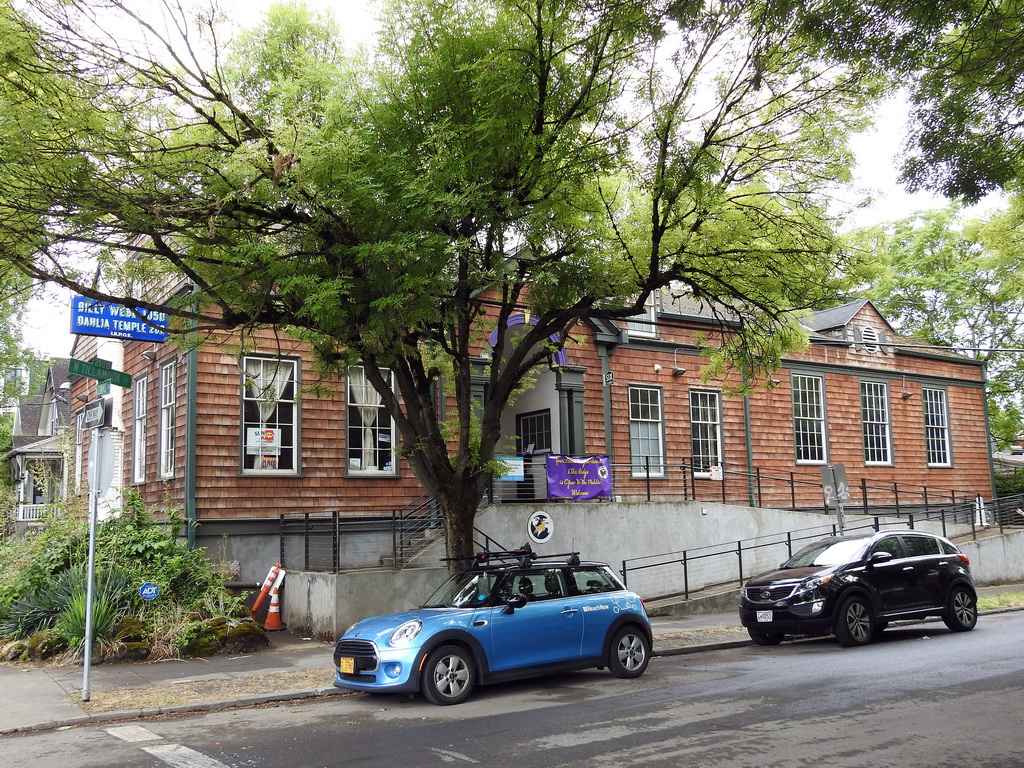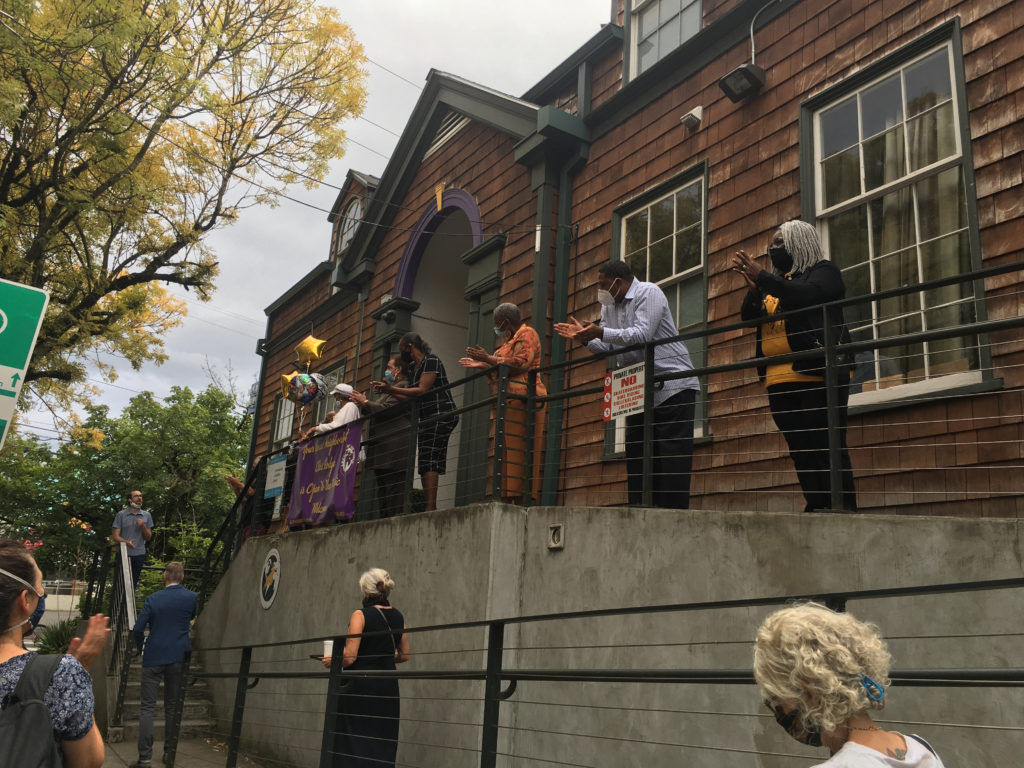
“Preservation is uniquely positioned to strengthen our national culture and identity through the protection, conservation, and recognition of the places and cultural assets that speak to centuries of Black life and activism.” – National Trust for Historic Preservation, Preserving African American Places: Growing Preservation’s Potential as a Path for Equity (October 2020)
As the field of historic preservation works to build a more inclusive movement, representation of diverse communities in the National Register of Historic Places has emerged as a key issue. In particular, historic resources associated with communities of color, the LGBTQ+ community, and women’s history are significantly underrepresented on the National Register; for example, fewer than five percent of all listings on the National Register focus on the lived experiences of African Americans. In response to this imbalance, preservation professionals, nonprofit organizations, government offices, and volunteers across the country are striving to promote the documentation and recognition of places of significance to historically underrepresented communities.

The Billy Webb Elks Lodge, pictured here in June 2019, is only the fourth property in Portland, Oregon, to be listed to National Register of Historic Places for its association with the history of the city’s African American community. It is the first to be nominated under the auspices of the African American Resources in Portland, Oregon, Multiple Property Documentation Form.
Recently, Architectural Resources Group’s Pacific Northwest office contributed efforts to two documents recognizing the significance of properties associated with the African American community in Portland, Oregon. The first of these documents, the African American Resources in Portland, Oregon, from 1851 to 1973 Multiple Property Documentation (MPD) form, provides an extensive historic context for properties associated with the city’s African American community and a framework for evaluating those properties according to the National Register criteria for eligibility. The second document, a National Register nomination for the Billy Webb Elks Lodge, utilized the MPD context and evaluative framework to establish the historic significance and National Register eligibility of a property that holds particular importance within the city’s historic and present-day African American community.
While not National Register nominations in their own right, MPDs are intended to organize information about related properties that can support future National Register nomination and other preservation planning purposes. MPDs also define registration requirements tailored to specific types of related properties, essentially mapping the path toward designation for qualifying properties. Properties that fit within the definitions of a thematic group described by an MPD may be nominated to the National Register with reference to the relevant MPD form, thereby streamlining the nomination process by reducing the amount of time and research necessary to complete the nomination.
The group of properties for which a particular MPD is relevant may share a similar period of construction, geographic distribution, cultural association, architectural type or style, or any number of common physical, geographical, or historical characteristics. Some MPDs define their subjects relatively narrowly: for example, the Settlement-era Dwellings, Barns, and Farm Groups of the Willamette Valley, Oregon MPD provides a context and evaluative framework for historic resources constructed in Oregon’s Willamette Valley by Euroamerican settlers between 1841 and 1865. Other MPDs address larger regions, longer time spans, and broader historical themes: the Asian Americans and Pacific Islanders in California, 1850-1970 MPD, for example, spans more than a century and encompasses historic resources across the entire state of California. For its part, the African American Resources in Portland MPD is concerned with properties associated with the African American experience in Portland between 1851, the year the city was incorporated, and 1973, which marks the end of Urban Renewal programs that displaced many African American Portlanders from their homes.

The Billy Webb Elks Lodge was constructed in 1926 for the segregated, African American branch of Portland’s YWCA. Since 1959, the building has been owned and occupied by the local chapter of an African American fraternal organization.
The structure of the MPD form is reflective of its utility as a planning document and as an aid in preparing National Register nominations. The first part of the document identifies the related group of properties being documented, defines a period of significance, and lists relevant historic contexts. In order to focus attention on the many aspects of the African American experience in Portland, the historic contexts in the African American Resources in Portland MPD are organized thematically. Thematic contexts include “Settlement Patterns,” which examines the racist policies and social structures that influenced trends in African American settlement in Portland; “Business and Employment,” which details African American employment and entrepreneurship in the city; and “Civil Rights,” which covers a broad range of issues including legal reforms, the activities of notable local civil rights activists and advocacy organizations, and historical challenges to the de jure and de facto limitations upon African Americans’ rights in Portland and across the country. These historic contexts establish the importance of the properties to be considered and describe the unifying framework that underpins the MPD.
The second part of the MPD defines a set of registration requirements that property types associated with one of the contexts must meet in order to be considered eligible for National Register listing under the auspices of the MPD. In the African American Resources in Portland MPD, this includes residences, commercial buildings, entertainment venues, and religious facilities, among other property types. Because the central thematic focus of this MPD—the lived experience of the African American community in Portland between 1851 and 1973—is broad in both scope and temporal context, the properties that may be nominated under the MPD accordingly include a wide array of forms, styles, and uses.
By reducing the complexity of nominating individual properties associated with Portland’s African American community, the African American Resources in Portland MPD decreases the amount of time, funding, and expertise required to add properties to the National Register. In turn, listing on the National Register may create opportunities for the owners of nominated properties to secure grant monies, tax credits, and other sources of financial aid.

Members of the Billy Webb Elks Lodge celebrated the building’s acceptance to the National Register with a socially-distanced gathering in late August 2020.
The first property to be nominated to the National Register using the African American Resources in Portland MPD is the Billy Webb Elks Lodge, a building that has held prominence within Portland’s Black community for generations. Constructed in 1926 for the segregated, African American chapter of the local Young Women’s Christian Organization (YWCA), the building served as a meeting place for many local African American social groups and advocacy groups during a time when few venues were available to people of color. The United Service Organizations (USO) welcomed Black soldiers at this location during World War II, and the Portland branch of the NAACP established its first offices in the building’s basement in 1956. Since 1959, the former YWCA building has housed the local chapter of the Improved Benevolent and Protective Order of the Elks of the World (IBPOEW), an African American fraternal organization formed in response to discriminatory membership policies advanced by America’s predominantly white fraternities. The nomination for the Billy Webb Elks Lodge relies on the African American Resources in Portland MPD to provide broad historic context and support for its significance. The nomination was approved by the Keeper of the National Register of Historic Places on July 1, 2020, and the IBPOEW chapter that owns the building hopes to use this new status to secure funding for its future.
Efforts to produce the African American Resources in Portland MPD were led by the City of Portland Bureau of Planning and Sustainability and the Bosco-Milligan Foundation, a local historic preservation non-profit organization, and drew on the knowledge and expertise of Black community advisors including members of Oregon’s only statewide African American historical society, the Oregon Black Pioneers. Over a period of more than three years, a small group of volunteers, aided by City of Portland staff, researched and composed the historical context underpinning the document. Historians from Architectural Resources Group provided technical expertise and served as primary authors of the MPD registration requirements and the National Register nomination for the Billy Webb Elks Lodge.
As the City of Portland and the preservation community as a whole work to recognize, elevate, and celebrate the histories of underrepresented communities, the Billy Webb Elks Lodge nomination is intended to be the first of many National Register nominations facilitated by the African American Resources in Portland MPD. Currently, the Mallory Avenue Christian Church is in the process of being nominated under the MPD for the significance of its predominantly African American congregation’s community programming between 1968 and 1980.
